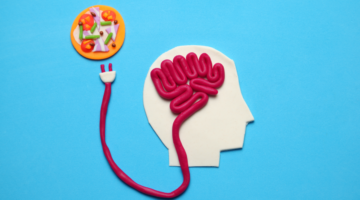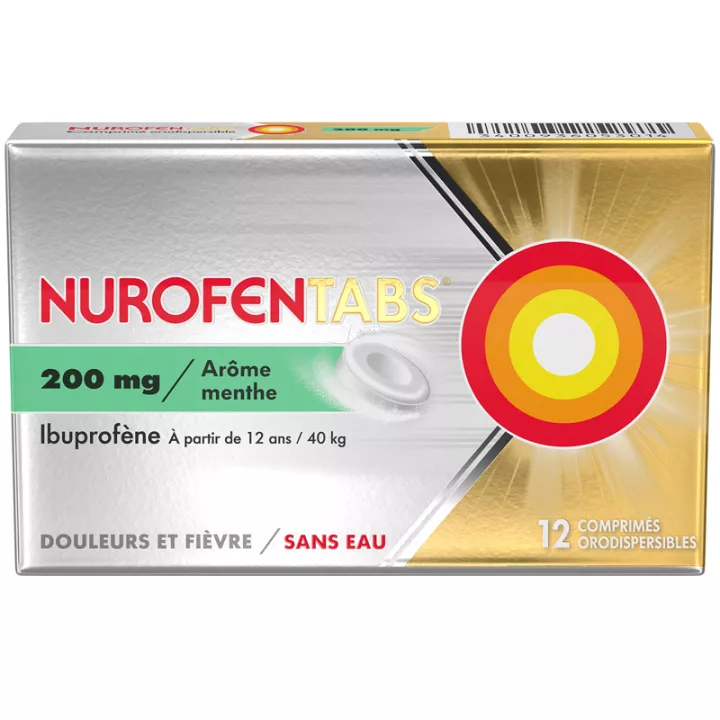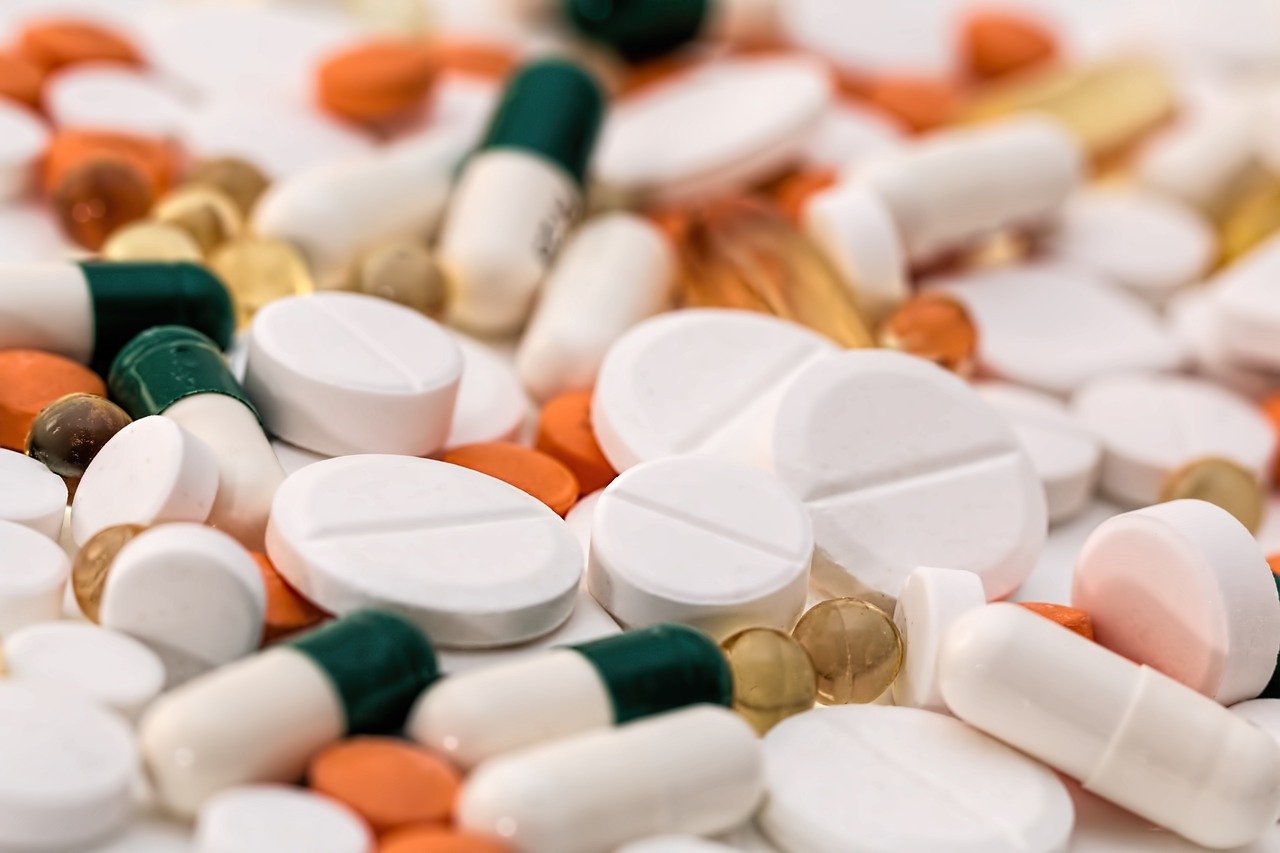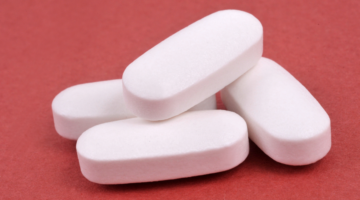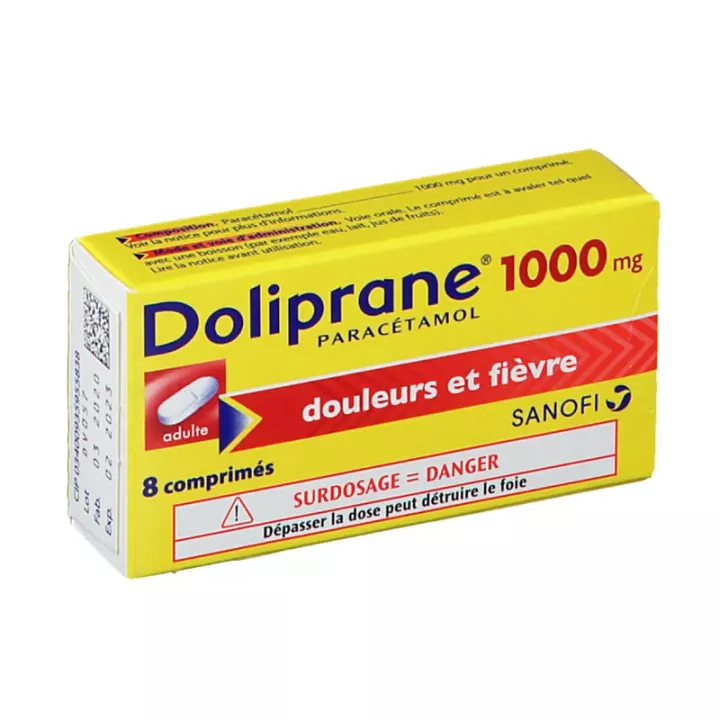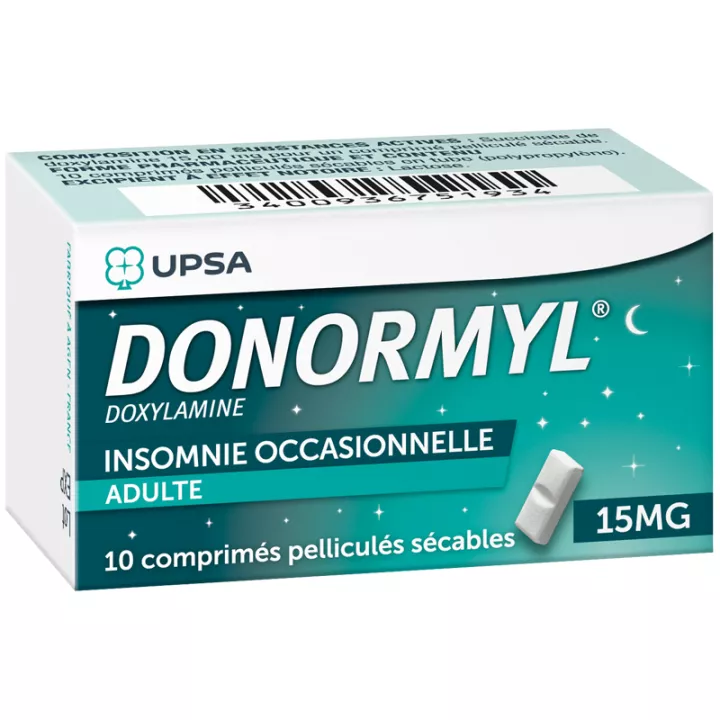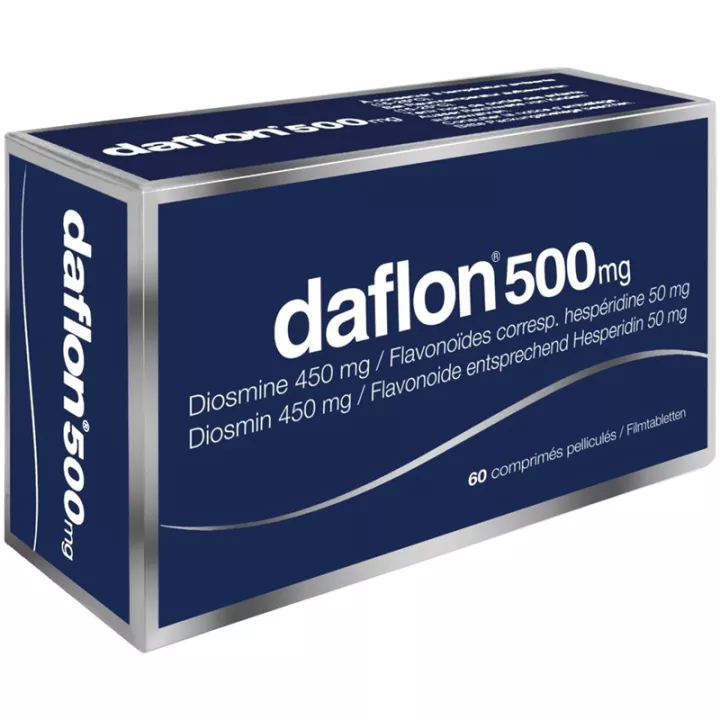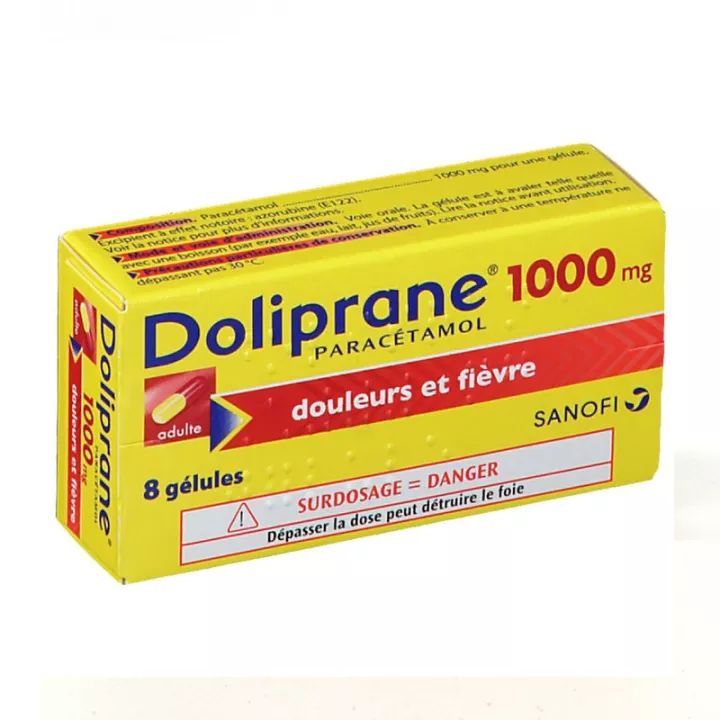NOTICE
ANSM - Last updated: 26/07/2017
Name of the medicinal product
DOLIPRANETABS 1000 mg film-coated tablet
Paracetamol
framed
Please read this leaflet carefully before you start taking this medicine because it contains important information for you.
You should always take this medication exactly as prescribed in this leaflet or by your doctor or pharmacist.
· Keep this leaflet. You might need to read it again.
· Ask your pharmacist for advice or information.
· If you experience any of the side effects, talk to your doctor or pharmacist. This also applies to any side effects not mentioned in this leaflet. See section 4.
· You should contact your doctor if you do not feel any improvement or feel less well after 3 days in case of fever or 5 days in case of pain.
Do not use this medication for children.
What is in this leaflet?
1. What is DOLIPRANETABS 1000 mg film-coated tablet and when it is used?
2. What should I tell you before taking DOLIPRANETABS 1000 mg film-coated tablets?
3. How to take DOLIPRANETABS 1000 mg film-coated tablet?
4. What are the possible side effects?
5. How to store DOLIPRANETABS 1000 mg film-coated tablets?
6. Package contents and other information.
1. WHAT IS DOLIPRANETABS 1000 mg film-coated tablet AND WHAT IT IS USED FOR?
Pharmacotherapeutic group: OTHER ANALGESICS AND ANTIPYRETICS
ATC code: N02BE01.
DOLIPRANETABS is an analgesic (calms the pain) and an antipyretic (lowers the fever).
The active substance of this drug is paracetamol.
It is used to treat pain and / or fever, for example in the case of headaches, flu-like symptoms, dental pain, body aches and painful periods.
This presentation is reserved for the adult and the child from 50 kg (that is to say from about 15 years): read the Posology section carefully.
For children weighing less than 50 kg, there are other presentations of paracetamol. Do not hesitate to ask your doctor or pharmacist for advice.
You should contact your doctor if you experience no improvement or feel worse after 3 days in case of fever, or after 5 days in case of pain.
2. BEFORE YOU TAKE DOLIPRANETABS 1000 mg film-coated tablet?
Do not take DOLIPRANETABS 1000 mg film-coated tablets:
· if you are allergic (hypersensitive) to paracetamol or any of the other ingredients of this medication mentioned in section 6.
· if you have severe liver disease,
· to treat a child under 6 years because it can swallow and choke. Use another form.
IN CASE OF DOUBT, IT IS ESSENTIAL TO ASK FOR THE OPINION OF YOUR DOCTOR OR YOUR PHARMACIST.
This medicinal product contains paracetamol. Other medicines contain it. Make sure you do not take any other medicines containing paracetamol, including medicines obtained without a prescription. Do not combine them , so as not to exceed the recommended daily dose. ( see "Posology " and "Symptoms and Instructions for Overdose") |
Warnings and Precautions
Talk to your doctor or pharmacist before taking DOLIPRANETABS 1000 mg film-coated tablets .
Take special care with DOLIPRANETABS
· If the pain persists more than 5 days or fever more than 3 days , or if there is insufficient efficacy or any other signs, do not continue treatment without your doctor's advice.
· Taking paracetamol may cause liver function problems.
· You should seek the advice of your doctor before taking this medicine:
o If you weigh less than 50 kg
o If you have a liver disease or a serious kidney disease,
o If you frequently drink alcohol or have stopped drinking alcohol recently,
o If you suffer from dehydration
o If you suffer from chronic malnutrition, if you are in a fasting period, if you have lost a lot of weight recently, if you are over 75, or if you are over 65 and have long-term illnesses , if you are infected with the AIDS virus or chronic viral hepatitis, if you suffer from cystic fibrosis (genetic and hereditary disease characterized by severe respiratory infections), or if you have Gilbert disease (hereditary disease associated with an increase in the level of bilirubin in the blood)
o If you are allergic to aspirin and / or nonsteroidal anti-inflammatory drugs.
· The consumption of alcoholic beverages during treatment is discouraged.
· In the event of recent withdrawal from chronic alcoholism, the risk of hepatic impairment is increased.
· When administered to a child, the dose depends on the child's weight (see section "How to take DOLIPRANETABS, 1000 mg, film-coated tablet?").
· In case of acute viral hepatitis, stop your treatment and consult your doctor
Blood tests
Tell your doctor if you are taking DOLIPRANETABS and you need to take a blood test as this medication may affect your uric acid (blood uric acid) and sugar (blood sugar) levels.
IN CASE OF DOUBT DO NOT HESITATE TO ASK FOR THE OPINION OF YOUR DOCTOR OR YOUR PHARMACIST
Other medicines and DOLIPRANETABS 1000 mg film-coated tablet
Inform your doctor or pharmacist if you are taking, have recently taken or may take any other medicines.
Do not take other medicines containing paracetamol. You may be overdosed.
If you are taking an oral anticoagulant therapy (warfarin or AVK), taking DOLIPRANETABS at maximum doses (4 g / day) for more than 4 days requires enhanced monitoring of the biological examinations including INR. In this case, consult your doctor.
The effectiveness of paracetamol may be reduced if you take concomitant resins - a drug that lowers blood cholesterol levels (observe an interval of more than 2 hours between the two).
If you are receiving paracetamol, a treatment with flucloxacillin (an antibiotic), you are at risk of metabolic acidosis (blood too acid causing an acceleration of the respiratory rate).
The toxicity of paracetamol can be increased if you take:
· drugs potentially toxic to the liver
· drugs that promote the production of the toxic metabolite of paracetamol such as anti-epileptic drugs (phenobarbital, phenytoin, carbamazepine, topiramate),
· rifampicin (an antibiotic)
· at the same time alcohol
DOLIPRANETABS 1000 mg, film-coated tablets with food, drinks and alcohol
The consumption of alcoholic beverages during treatment is discouraged.
Pregnancy, breast-feeding and fertility
If you are pregnant or breastfeeding, think you may be pregnant or plan a pregnancy, ask your doctor for advice or pharmacist before taking this medication.
Pregnancy and breast feeding
This medicine may be used during pregnancy and lactation. Use the lowest dose to reduce your pain and / or fever for as short a time as possible and as often as possible. Contact your doctor or midwife if pain and / or fever does not decrease or if you need to take this medication more frequently during your pregnancy.
Fertility
It is possible that paracetamol may alter the fertility of women, reversibly upon cessation of treatment.
Sport
Not applicable.
Driving and using machines
Not applicable.
DOLIPRANETABS 1000 mg film-coated tablet contains
Not applicable.
3. HOW TO TAKE DOLIPRANETABS 1000 mg film-coated tablet?
Caution: this presentation contains 1000 mg (1g) of paracetamol per tablet: do not take 2 tablets at a time.
This presentation is reserved for adults and children weighing more than 50 kg (ie from about 15 years).
For children weighing less than 50 kg, there are other presentations of paracetamol with a more appropriate dosage. Do not hesitate to ask your doctor or pharmacist for advice.
Dosage in adults and children from 50 kg (ie from about 15 years)
The usual dosage is one tablet at 1000 mg (1 g) per dose, to be renewed if necessary after a minimum of 4 hours.
Dose of paracetamol never to be exceeded
· In adults or children weighing more than 50 kg:
It is usually not necessary to exceed 3 grams of paracetamol per day (3 tablets per day). However, if you have more intense pain, and only on the advice of your doctor or pharmacist , the total dose can be increased up to 4 grams per day, or 4 tablets per day. If you feel that the effect of DOLIPRANETABS 1000 mg film-coated tablet is too strong or too weak, talk to your doctor or pharmacist.
NEVER TAKE MORE THAN 4 GRAMS OF PARACETAMOL PER DAY, (including all drugs containing paracetamol in their formula)
In case of severe kidney disease (severe kidney failure), catches should be spaced 8 hours apart and the total daily dose should not exceed 3 tablets (3 g).
· Special situations:
The maximum daily dose should not exceed 60 mg / kg / day (not to exceed 3 g / day) in the following situations:
· If you weigh less than 50 kg,
· If you have a liver disease or a serious kidney disease,
· If you frequently drink alcohol or have stopped drinking alcohol recently,
· If you suffer from dehydration,
· If you suffer from chronic malnutrition, if you are in a fasting period, if you have lost a lot of weight recently, if you are over 75, or if you are over 65 and have long-term illnesses , if you have AIDS or chronic viral hepatitis, if you suffer from cystic fibrosis (genetic and hereditary disease characterized by severe respiratory infections), or if you have Gilbert's disease (hereditary disease associated with increased bilirubin levels in the blood).
Method and route of administration:
This medication is used orally.
You should swallow the tablet as it is with a drink (eg water, milk, fruit juice).
Taking a tablet or capsule is contraindicated in children before 6 years because it can swallow and choke. Use another form.
In addition, if your child has a fever greater than 38.5 ° C, you can improve the effectiveness of the drug treatment by:
· Check it out,
· Make the drink,
· Do not leave it in a hot place.
Frequency of Administration
· Regular intakes prevent the pain or fever from returning: "see section Dosage".
· The catch must be regularly spaced, including at night, for a minimum of 4 hours (refer to the "Dosage" section).
· If you have severe kidney disease (severe kidney failure), you should wait at least 8 hours between each tablet (s).
Duration of the treatment
Except for medical advice, the duration of treatment is limited: · 5 days in case of pain · at 3 days in case of fever. |
Stop treatment and see your doctor immediately:
· If pain persists more than 5 days or fever more than 3 days
· If pain or fever worsens
· Or if new symptoms appear.
If you take more DOLIPRANETABS 1000 mg film-coated tablets than you should:
Consult your doctor or pharmacist or medical emergencies immediately.
Overdosage may lead to liver disease (hepatic impairment), gastrointestinal bleeding, brain disease (encephalopathy), coma, or even death, including in populations at higher risk, such as young children, the elderly and in certain situations (liver disease, alcoholism, chronic malnutrition). Within the first 24 hours, the main symptoms of poisoning are: nausea, vomiting, loss of appetite, abdominal pain, pallor.
Overdosage may also result in: pancreatic disease (pancreatitis), hyperamylaseemia (increased blood amylase), kidney disease (acute renal failure), and a blood problem in which red blood cells, white blood cells and platelets are all reduced in number which entails:
· fatigue, shortness of breath, and pallor;
· frequent infections with severe fever and chills, sore throat or mouth ulcers;
· a tendency to bleed or present spontaneous bruising, nosebleeds.
If you forget to take DOLIPRANETABS 1000 mg film-coated tablets:
Do not take a double dose to make up for a missed dose.
If you stop taking DOLIPRANETABS 1000 mg film-coated tablets:
Not applicable.
4. WHAT ARE POSSIBLE SIDE EFFECTS?
Like all medicines, this medicine may cause side effects, although not everybody gets them.
· Rarely, an allergic reaction may occur:
o Buttons and / or redness on the skin,
o Urticaria,
o Sudden swelling of the face and neck may cause difficulty breathing (angioedema),
o Sudden malaise with a significant drop in blood pressure (anaphylactic shock).
If an allergy occurs, you should immediately stop taking this medication and consult your doctor promptly. In the future, you will never have to take medicines containing paracetamol.
· Very rare cases of serious adverse reactions have been reported.
· Exceptionally, this drug may decrease the number of certain cells in the blood: white blood cells (leucopenia, neutropenia), platelets (thrombocytopenia) that can manifest themselves by bleeding from the nose or gums. In this case, consult a doctor.
· Other possible adverse reactions (the frequency of which can not be estimated from the available data): liver function disorders, severe reduction of certain white blood cells that can cause serious infections (agranulocytosis), destruction of red blood cells in the blood (anemia hemolytic in patients with glucose-6-phosphate dehydrogenase deficiency), rash in round red patches with itching and burning sensation, leaving colored spots and appearing in the same places when the drug is resumed (fixed pigmented erythema ), localized pain in the chest that can radiate to the left shoulder and jaw of allergic origin (Kounis syndrome), difficulty breathing (bronchospasm). In this case, consult a doctor.
Declaration of side effects
If you experience any side effects, talk to your doctor or pharmacist. This also applies to any side effects not mentioned in this leaflet. You can also report adverse reactions directly via the national reporting system: National Agency for the Safety of Medicines and Health Products (ANSM) and network of Regional Centers of Pharmacovigilance - Website: www.ansm.sante.fr
By reporting adverse reactions, you are helping to provide more information about the safety of the drug.
5. HOW TO STORE DOLIPRANETABS 1000 mg film-coated tablet?
Keep this medicine out of the reach and sight of children.
Do not use this medicine after the expiry date which is stated on the package.
No special storage conditions.
Do not throw any medicines into drains or rubbish. Ask your pharmacist to remove any medications you are no longer using. These measures will help protect the environment.
6. PACKAGE CONTENTS AND OTHER INFORMATION
What DOLIPRANETABS 1000 mg contains, film-coated tablets
· The active substance is:
Paracetamol................................................. .................................................. .......... 1000.00 mg
For a film-coated tablet.
· The other components are: pregelatinized maize starch, hydroxypropylcellulose, talc, magnesium stearate, opadry (polyvinyl alcohol, macrogol 3350, talc).
What is DOLIPRANETABS 1000 mg film-coated tablets and contents of the pack
This drug is in the form of film-coated tablet.
8, 10, 12, 16, 20 or 100 tablets in blister packs (PVC / Aluminum).
Not all pack sizes may be marketed.
Marketing Authorization Holder
SANOFI AVENTIS FRANCE
82 AVENUE RASPAIL
94250 GENTILLY
Marketing Authorization Operator
SANOFI AVENTIS FRANCE
82 AVENUE RASPAIL
94250 GENTILLY
Maker
CHINOIN PHARMACEUTICAL AND CHEMICAL WORKS PRIVATE CO; LTD
LEVAI UTCA 5
2112 VERESEGYHAZ
HUNGARY
Names of the medicinal product in the Member States of the European Economic Area
Not applicable.
The last date on which this leaflet was revised is:
{month YYYY}.
Other
Detailed information on this medicine is available on the ANSM website (France).
Health Education Council:
WHAT TO DO IN THE EVENT OF FEVER:
The normal temperature of the body varies from person to person and is between 36 ° C and 37 ° C. A temperature rise above 38 ° C may be considered a fever but it is not advisable to treat fever with a drug below 38.5 ° C.
This medication is for adults and children over 50 kg (ie from about 15 years).
If the disorders that the fever causes are too troublesome, you can take this drug that contains paracetamol in accordance with the indicated dosages.
To avoid any risk of dehydration, consider drinking frequently.
With this medication, the fever should drop rapidly. However:
· if other unusual signs appear
· if the fever persists for more than 3 days or if it worsens,
· if the headache becomes violent, or in case of vomiting.
CONSULT YOUR DOCTOR IMMEDIATELY .
WHAT TO DO IF PAIN:
The intensity of the perception of pain and the ability to resist it vary from person to person.
· If there is no improvement after 5 days of treatment,
· If the pain is violent, unexpected, and occurs abruptly (including severe pain in the chest) and / or reverses regularly,
· If it is accompanied by other signs such as a state of general malaise, fever, unusual swelling of the painful area, decreased strength in a limb,
· If she wakes you up at night.
CONSULT YOUR DOCTOR IMMEDIATELY .
